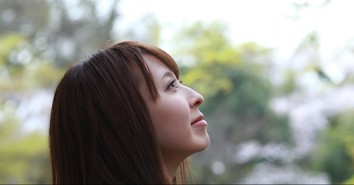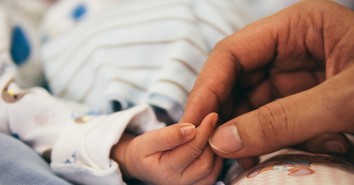When Boys Will Be Girls

November 14, 2008
You might expect to see this article in some other supermarket tabloid. Instead “A Boy’s Life” by Hanna Rosin appears in the November Atlantic. It focuses on the story of Brandon (not his real name).
Since he could speak, Brandon, now 8, has insisted that he was meant to be a girl. This summer, his parents decided to let him grow up as one. His case, and a rising number of others like it, illuminates a heated scientific debate about the nature of gender—and raises troubling questions about whether the limits of child indulgence have stretched too far.
Brandon and other “transgendered” children and adults are convinced in spite of physical and genetic evidence that they have been “born in the wrong body.”
Rosen writes that at school Brandon draws pictures of himself as “a girl, often with big red lips, high heels, and a princess dress” or as “a mermaid with a sparkly purple tail, or a tail cut out from black velvet.” From an early age he dressed up in his sister’s or mother’s clothes and at five insisted that if God made him a boy, “God made a mistake.”
As I read, my heart went out to Brandon, his mom, and the other children and parents whose stories Rosen tells. What would I do if my son wanted to be my daughter or my daughter wanted to be my son? I do not know and so I do not want to minimize difficulties, confusion, or pain. Nonetheless, it is clear to me that this is a story illustrates a deeply flawed view of what it means to be human.
One mother Rosen quotes said about her five-year-old son, “She could end up being a mommy if she wants, just like me.” The italics are Rosen’s and point to the heart of the issue.
These parents can let their boy dress and act as girls and their girls dress and act as boys. They can change their names (Brandon is now called Bridget). As they approach puberty they can and do give their children puberty blocking drugs that Rosen says, “prevent boys from growing facial and body hair and an Adam’s apple, or developing a deep voice or any of the other physical characteristics that a male-to-female transsexual would later spend tens of thousands of dollars to reverse… [and] allow girls to grow taller, and prevent them from getting breasts or a period.” They can even pay for hormone treatments and sexual reassignment surgery later on. But that will never change the fact that little boys cannot grow up to be mommies and little girls cannot grow up to be daddies. Our bodies have made those decisions for us.
But people in our culture are no longer willing to own their bodies as themselves. We think that “real me” is entirely spiritual. The body is treated as an appendage that can be manipulated to satisfy the desires and whims of that “real me.” In this, we have taken a Gnostic turn, radically separating body from spirit.
In his book The Making of the New Spirituality: The Eclipse of the Western Religious Tradition, James Herrick writes, “In its most elemental form, Gnosticism is the systematic spiritual effort to escape the confines of history and physical embodiment through secret knowledge (gnosis) and technique (magic).”
Thus we have the wide-spread belief that each of us has a “true self” hidden deep inside and needing to be discovered (gnosis). That true self is independent of the body which is, after all, nothing but a container—or even “prison”—that will be gleefully cast off at death. Pharmaceuticals, medical science, and surgery (modern magic) are employed to create whatever sort of body a “true self” requires. We have, as scholar and IRD board member Mary Ellen Bork has written, “accepted the cultural trend that our bodies are objects to be reconfigured and have lost the sense that the body expresses a person who is not self-created.”
This is the problem not only for transgendered children and their families, but for the rest of us with our own whole host of personal problems and dissatisfactions. The givenness of the body, male and female, is a great fact of life that we ignore at our peril—and considerable expense.
This is not to say along with Alexander Pope that “whatever is is right.” In a fallen world we should expect homosexuality, transgender disorders, sexual addictions, and a thousand and one other shades of confusion about who and what we are.
It does mean that central to a Christian understanding of humanness is the notion of a Creator. None of us “asked to be born this way.” None of us asked to be born at all. Life as a human—body knit to soul, male and female—is the gift of God to be received with thanksgiving.
The Institute on Religion & Democracy is an ecumenical alliance of U.S. Christians working to reform our churches' social witness, in accord with biblical and historic teachings, thereby contributing to the renewal of democratic society at home and abroad. IRD depends on support from people like you. Click here to learn how you can help support IRD's mission.
Originally published November 14, 2008.




